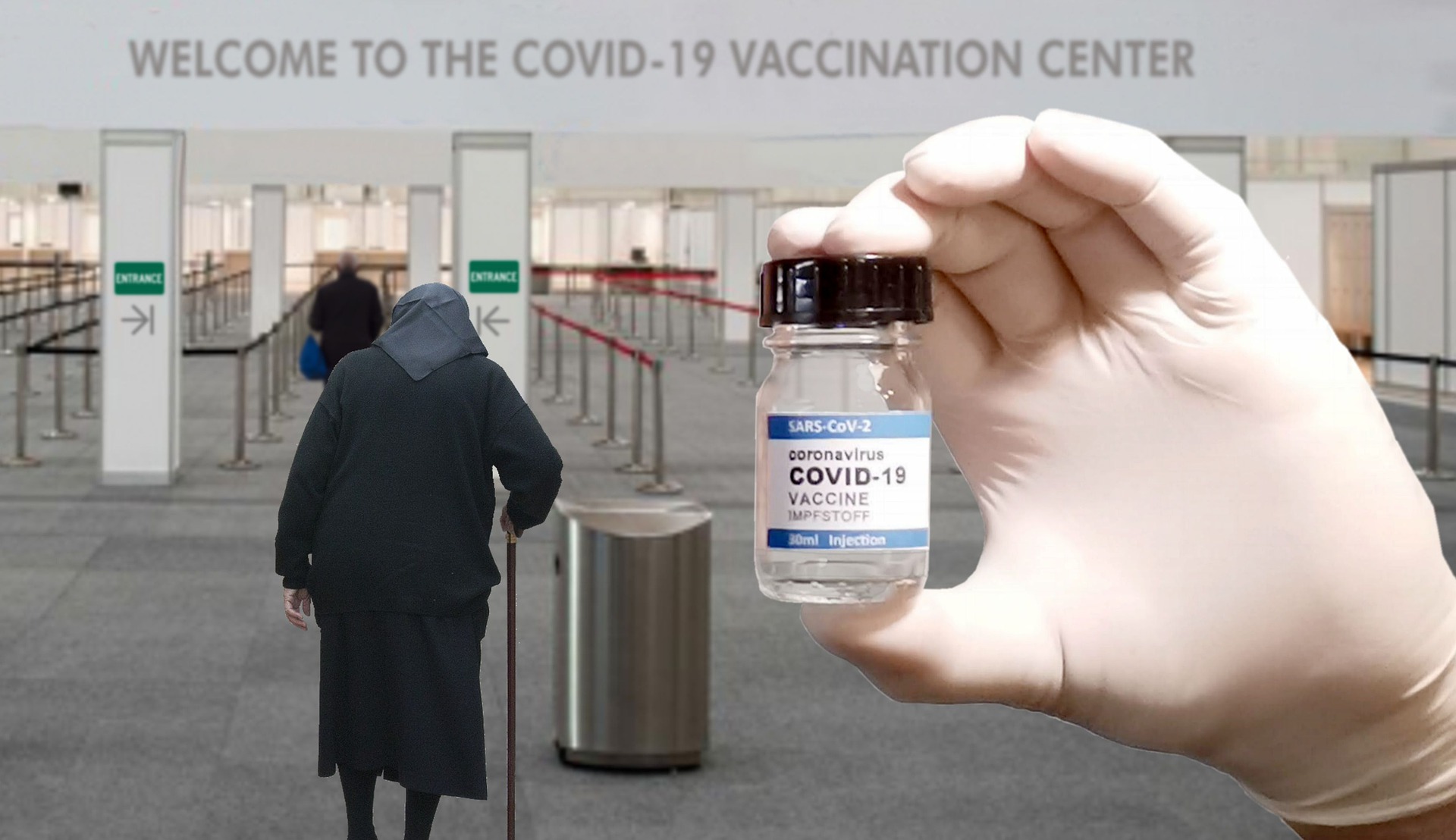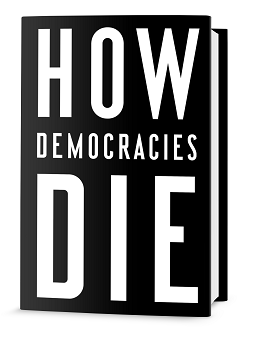On July 31, 2025, the Ninth Circuit issued its ruling in Health Freedom Defense Fund et al. v. Megan K. Reilly et al., vacating the earlier ruling of a three-judge panel of the Ninth Circuit in favor of plaintiffs Health Freedom Defense Fund (HFDF), California Educators for Medical Freedom (CAEMF), and several individual plaintiffs.
The reasoning of the court in its latest ruling, as represented by Judge Bennett’s majority opinion, is an affront to all who value truth, justice, the United States Constitution, and logic. Incredibly, the court concluded that as long as a government official believes a vaccine will protect public health, it is irrelevant whether the vaccine actually works. Armed with this rationale, a state government, simply by uttering the words “This is for public health,” can force any individual to submit to a medical treatment, even if that medical treatment does not benefit that individual—and perhaps harms him. The implication of this line of thinking is clear: Government is our absolute ruler, our master, and we are its chattel.
Here is the context of the ruling: In November 2021, the plaintiffs sued the Los Angeles Unified School District (LAUSD) for mandating Covid injections for all employees. We argued that the Covid injections do not stop transmission or infection and therefore lack any public health justification. We contended that Jacobson v. Massachusetts, a Supreme Court of the United States (SCOTUS) case from 1905, did not apply to our case because Jacobson was predicated both on the extreme emergency posed by smallpox—its death rate was 30%, whereas Covid has a 1% rate of death—and on a safe and effective smallpox vaccine that was believed to actually stop the spread of the dreaded disease based on decades of use, therefore providing a public health justification.
Nearly a year later, in September 2022, the district court ruled against the plaintiffs. But in January 2023 plaintiffs appealed that decision. In June 2024 a three-judge panel ruled in favor of plaintiffs, overturning the district court and remanding the case to the district court. The next month—July 2024—the defendants filed a petition for an en banc review by the Ninth Circuit. That petition was granted in February of 2025 and oral argument was held in front of the 11-judge panel, on March 18, 2025. On July 31, 2025, the Ninth Circuit issued its ruling in favor of the defendants and dismissed the case.
It bears mentioning that the SCOTUS has overturned decisions rendered by the Ninth Circuit more often than it has any other circuit court in the US. This case amply serves to illustrate precisely why the Ninth has earned such an ignominious reputation.
Indeed, the recent ruling is so egregious that it warrants a thorough breakdown of the main issues:
{1} The Ninth Circuit asserted that the right to direct one’s own medical treatment is not a fundamental right. It cited several precedents, including Mullins v. Oregon, 57 F.3d 789, 793 (9th Cir. 1995), in which the court held, “Only those aspects of liberty that we as a society traditionally have protected as fundamental are included within the substantive protection of the Due Process Clause.” To be clear, nowhere does our Constitution empower the state to dictate any medical intervention. On the contrary, the Constitution serves as a restraint on government, not on the people. Moreover, there is not a single case in the 120 years since Jacobson when a locality mandated a vaccination or otherwise directed the medical treatment of the people in general. Thus, the Ninth Circuit’s insinuation that our society routinely accepts vaccine mandates for adults in general is patently false. By this metric and Jacobson’s holding in 1905, women would still not be allowed to vote. In actuality, Jacobson did not allow the state to condition employment or engagement in normal life on receipt of an injection. Instead, it merely allowed the state to impose a fine, not to condition employment or participation in normal life on receipt of an injection.
{2} The Ninth Circuit not only claimed that Jacobson is binding but it ignored ample and more recent SCOTUS jurisprudence that holds otherwise. In recent decades, SCOTUS has determined that each of us possesses a zone of privacy around us into which the state may not intrude (Griswold v. Connecticut); that each of us has the right to refuse unwanted medical treatment (Washington v. Harper); and that each of us has the right to refuse lifesaving medical treatment (Cruzan v. Director, Missouri Department of Health). Yet the Ninth Circuit has dismissed those decisions and has hidden behind the immoral and century-old Jacobson.
{3} Perhaps most egregious of all its conclusions, the Ninth Circuit held that as long as authorities could reasonably assume the Covid injection had a public benefit, the policy was Constitutional—irrespective of whether the injection worked or whether any claims made by authorities were valid or true. Bennett wrote, “Jacobson holds that the constitutionality of a vaccine mandate, like the Policy here, turns on what reasonable legislative and executive decisionmakers could have rationally concluded about whether a vaccine protects the public’s health and safety, not whether a vaccine actually provides immunity to or prevents transmission of a disease.” But this contention is false. Jacobson did hinge on the general perception that the smallpox vaccine in particular, and vaccines in general, prevent transmission of disease. Clearly, absent that ability, there is no public health rationale. Most worryingly, by the court’s metric, a lying politician or policymaker can mandate virtually any medical intervention on the American people as long as it is under the guise of public health.
{4} In Jacobson, the Court reasoned that “in every well-ordered society charged with the duty of conserving the safety of its members the rights of the individual in respect of his liberty may at times, under the pressure of great dangers, be subjected to such restraint, to be enforced by reasonable regulations, as the safety of the general public may demand” (197 U.S. at 30). [Emphasis added.] The Ninth Circuit made a massive stretch by equating the dangers of Covid with the dangers of smallpox. No comparison could be further from the truth. Evidence proves that early spread of Covid had already occurred across much of Los Angeles County by the spring of 2020, when research found that 4% of adults had already had the disease and had recovered from it, thereby negating the need for any preventive measures by late 2021, when the school district’s policy was implemented. In addition, it was widely documented at the time that the dangers of Covid were miniscule for all but the elderly and extremely infirm in comparison to the ravages of smallpox. Because there was provably no great danger from Covid, LAUSD’s injection mandate for employees was completely unreasonable and unjustified.
{5} In Jacobson, Justice Harlan wrote, “According to settled principles, the police power of a State must be held to embrace, at least, such reasonable regulations established directly by legislative enactment as will protect the public health and the public safety.” Since the Covid injections do not stop transmission or infection, they do not “protect the public health and the public safety” and are not “reasonable”—the Ninth Circuit, or any court for that matter, cannot conclude that Covid injections do protect public health and safety when they do not affect either.
{6} In further justifying the court’s ruling, Judge Bennett wrote, “The SAC [Second Amended Complaint of plaintiffs] concedes that COVID-19 vaccines “lessen the severity of symptoms for individuals who receive them.” From this, the LAUSD could have reasonably determined that the vaccines would protect the health of its employees.” Here, the Ninth Circuit slyly and dishonestly shifted from public health and safety to the individual health of school district employees. But since when has it ever been a school district’s job to direct the medical treatment of individual employees? Going forward, will LAUSD also mandate that its employees get regular exercise and eight hours of sleep? Will cholesterol-lowering drugs be forced on teachers? Will their consumption of sugar and of alcohol be monitored and regulated? Where does Big Brother stop?
{7} When a plaintiff files a lawsuit, courts are obligated to accept the truth of the plaintiffs’ allegations at the initial stage of proceedings as long as the claims are plausible. In our case, both the three-judge panel and the dissent in the latest ruling acknowledged that we had plausibly pled that Covid injections do not stop infection or transmission. It is our right, according to the rules, to have the opportunity to prove our case in court. However, the Ninth Circuit robbed us of that right. In addition, the Ninth Circuit’s decision has denied us the right of any plaintiff to dispute the issues of fact in front of the court. If the Ninth Circuit can abdicate its duties and thereby violate the basic principles of our judicial system, what is the point in attempting to resolve disputes in the courts? Moreover, how can any American have faith in our judicial system?
{8} When a party disagrees with a ruling from a district court, the party may appeal to the circuit court. If a party disagrees with a ruling from the circuit court, the party may petition the circuit court for an en banc review by a broader panel of judges than the small panel. A review of the en banc process in the Ninth Circuit reports, “To qualify for en banc review, the petition must show that the decision of the three-judge panel conflicts with “a decision of the United States Supreme Court,” “an authoritative decision of another United States court of appeals,” or “a decision of the court to which the petition is addressed” and consideration by the full court is “necessary to secure or maintain uniformity of the court’s decisions,” or “the proceeding involves one or more questions of exceptional importance.” Rule 40(b)(2)(A)-(D).” None of these conditions were met in our case, yet the rehearing was granted. Was this apparent violation of the rules a politically motivated decision?
{9} The Ninth Circuit did not even acknowledge that in September 2021 the US Centers for Disease Control and Prevention (CDC) had suspiciously timed and conveniently altered its definition of “vaccine” from an injection that prevents disease and produces immunity to the “act of introducing a vaccine into the body to produce protection.” This deceptive move allowed authorities to label Covid injections “vaccines” instead of categorizing them as “gene therapy.” It should be obvious that the public would be reticent to submit to a new gene therapy while it would be more comfortable with a vaccine.
{10} The Ninth Circuit repeatedly noted that Jacobson allows the legislature and executive decision-makers to enforce reasonable laws to protect public health. But there is no mention of school boards in Jacobson! And the California legislature did not enact any legislation regarding Covid injections. Therefore, pretending the 1905 ruling empowers school boards and legislatures is a fallacious claim. This is another instance of how the Ninth used deceptive sleight-of-hand in reaching its decision.
There are many more issues with the Ninth Circuit’s recent ruling. But for brevity’s sake, I will make only a few more comments.
It is remarkable that no Ninth Circuit judge took the time to write a concurrence-especially in light of the tenor of oral argument before the en banc panel in March of 2025. During oral argument, the questions posed by the majority of the judges suggested they favored the arguments of plaintiffs and we left the court feeling very optimistic while counsel for the defendants looked downcast. Yet none of those judges championing the principles during the hearing took the time to write a concurrence in support of the majority opinion. I can only wonder why not.
The biggest takeaway from the ruling is this: If the state can mandate a medical product under a real or a fake public health scare, can it mandate any medical intervention it chooses? What are the limits of the state’s power? Can it mandate psych meds to improve public morale? How about Adderall to enhance public productivity? Or regulate sugar to improve immunity? And why not forced pregnancy to ensure a stable population base? Of course, all of these dictates would be for the greater good!
Judge Bennett wrote, “We reject Plaintiffs’ attempt to limit Jacobson to only those vaccines that prevent the spread of a disease and provide immunity.”
By the court’s logic, there is no limit to the power of the state—a conclusion that should terrify us all. Equally concerning: The Ninth Circuit has abdicated its power and authority to hold public servants accountable. When the courts cannot be relied upon to hold public servants accountable, who can? And where does that leave us?
As Judge Lee wrote in the fitting conclusion to his powerful dissent, “As a practical matter, I fear we are giving the government a blank check to foist health treatment mandates on the people—despite its checkered track record—when we should be imposing a check against the government’s incursion into our liberties.











